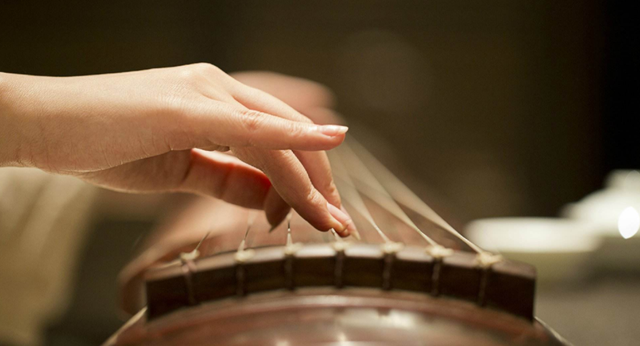Summer Guqin maintenance guide: Scientific and effective maintenance strategies to ensure that the sound of the guqin is always new
With the arrival of the hot summer, for the guqin friends, how to do a good job in the hot and humid season of guqin maintenance is particularly important. Guqin as a traditional Chinese wooden chord instrument, its material is very sensitive to changes in temperature and humidity, so the correct maintenance of guqin in summer can not only extend the life of the instrument, but also maintain its pure timbre.

First of all, control of ambient temperature and humidity is the foundation. In summer, the temperature is high and the air humidity is high, and the guqin is easily deformed by moisture, resulting in affected timbre. The ideal ambient temperature should be maintained between 15 ° C and 30 ° C, and the relative humidity should be controlled at 50% to 70%. If conditions permit, you can use a dedicated constant temperature and humidity cabinet or install a dehumidifier, air conditioning and other equipment in the room to ensure that the guqin is not damaged by moisture.
Second, avoid direct sunlight and heat sources. The summer sun is strong, long-term exposure will make the guqin panel discolor or even crack, affect the stability of the wood structure, and indirectly damage the sound quality. The piano should be placed in a cool and ventilated place, away from heating, furnaces or other heating bodies, to prevent excessive drying of the wood due to high temperature.
Furthermore, check and clean regularly. Summer sweat secretion increases, the hand grease is easy to adhere to the piano surface, so every time after playing the use of a clean and soft cloth gently wipe the body, especially the strings and Yueshan parts, to prevent rust. At the same time, pay attention to cleaning the dust inside the violin, so as not to accumulate too much dust affecting the resonance effect.
In addition, use moisture protection measures wisely. An appropriate amount of hygroscopic agent can be placed in the instrument sac, but it must be ensured that it is not in direct contact with the instrument body to avoid accidental damage to the instrument surface. If the body is found to have slight signs of moisture, you can open the bag in time to air, so that the wood can be naturally ventilated and dry.
Finally, appropriately reduce the frequency of playing. In extreme hot and humid conditions, try to avoid frequent playing, so as not to increase the pressure on the strings and the body, causing unnecessary physical deformation. Resuming daily practice when the climate is suitable helps protect the guqin from additional wear and tear.
In short, the maintenance of the guqin in the summer is a meticulous and comprehensive work, which requires the qin friends to start from the details and take full care of the artistic treasures that carry the cultural accumulation of thousands of years, so that it can still be full of fascinating sounds of nature after years of precipitation.
 渝公网安备 50010702504639号
渝公网安备 50010702504639号